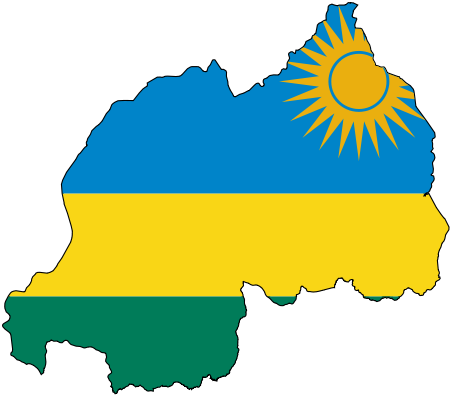Natural Resources & Endangered Species Research & Support at Ft. Hood, TX
The government seeks research and technical support for data analyses, surveying and monitoring of endangered, migratory bird, pollinator and invasive species on Fort Hood, Texas.
Study design and focal study sites will be decided based upon input from Fort Hood, ERDC-CERL, and CESU partners.
It is anticipated that results from Fort Hood will be relevant for management throughout the focal species range.
Details of primary tasks are as follows:
Task 1:
Analyses of distribution, abundance and population status of endangered and migratory bird species.
Data collected during the 2024 avian breeding season will be made available for analyses of distribution, abundance, and population status of endangered and migratory bird species on Fort Hood.
Available data will include point count surveys, nest location, nest monitoring, and productivity.
Work accomplished under this task will include data summarization and analysis to determine Fort Hood population size and trends as well as impacts of species management on regional population goals.
Data will be used to populate annual report on status of endangered species at Fort Hood, Texas.
Task 2:
Monitoring of demographic parameters of endangered bird species.
During the 2025 breeding season (March-July) this task will collect demographic data on endangered and at-risk bird (black-capped vireo and golden-cheeked warbler) occurrence, density and reproductive success at selected field monitoring sites on Fort Hood.
This data will be used to investigate temporal and spatial variation in avian demographic parameters, with the goal of identifying effective management and conservation strategies.
This work will require population census by conducting point count surveys on established point count routes for both species.
Reproductive success will be investigated by locating and monitoring vireo nests at established monitoring plots.
This work will require repeated nest visits and banding of nestlings.
Adult warbler demography will be conducted by capturing and banding of breeding adults.
This work will require personnel that either have current experience capturing passerine species using mist net capture techniques or can be trained and supervised by permitted personnel.
This work will be conducted under current state and federal permits held by Fort Hood staff.
This monitoring will be performed in accordance with protocols outlined in the Fort Hood ESMC.
Work will begin upon authorization to proceed with anticipated start in spring 202 5. Following the completion of the avian breeding season, demographic data will be analyzed to determine Fort Hood population size and trends as well as impacts species management on regional population goals.
Task 3:
Surveying and monitoring of migratory bird species.
During the 2025 breeding season (March-August) this task will collect required demographic data on migratory bird occurrence, density and nest placement at selected field monitoring sites on Fort Hood.
Sites will include areas with and without maneuver lane habitat modifications.
Nest placement will be investigated by locating and monitoring nests of all migratory species at established monitoring plots.
Recipient will conduct analyses to assess temporal and spatial trends in migratory bird abundance and reproductive efforts to inform management and conservation efforts.
This work will be conducted under current state and federal permits held by Fort Hood staff.
This monitoring will be performed in accordance with protocols outlined in the Fort Hood ESMC.
Task 4:
Surveying and monitoring of pollinator species.
During spring/summer 2025, this task will collect baseline data on butterfly populations on Fort Hood, with a focus on Monarch Butterflies.
Surveys will include transect surveys through grassland habitats on the installation.
Data will be collected on butterflies detected and milkweed stem counts to assess relationship between butterfly abundance/distribution and host plant density.
Any monarchs detected will be netted and tagged for the Monarch Watch Program.
Surveys and survey location determination will be conducted in collaboration with Fort Hood Natural Resources staff and ERDC-CERL.
Task 5:
Survey and management of feral hogs.
Feral hogs cause massive habitat degradation through trampling and rooting.
Largely because of the potential impacts on endangered and sensitive species habitats, Fort Hood actively monitors and manages the feral hog population.
Throughout fall 2024 and spring 2025, this task will survey for feral pigs on the installation using a variety of methods including visual surveys for animals and/or rooting, aerial surveys and trapping.
Recipient will conduct analyses to assess effectiveness of various feral hog survey and control methods for feral hog management.
Surveys and survey location determination will be conducted in collaboration with Fort Hood Natural Resources staff and ERDC-CERL.
Task 6:
Support for natural resources outreach activities.
This task will provide support for natural resources outreach activities for the local and installation communities.
Specific activities will be determined based on input from Fort Hood Natural Resources personnel and ERDC-CERL but examples include Christmas and Breeding Bird Count, outreach to local schools regarding natural resource activities conducted at Fort Hood, learning materials for adults and children, and hosting nature walks on the installation for natural resources education.
Study design and focal study sites will be decided based upon input from Fort Hood, ERDC-CERL, and CESU partners.
It is anticipated that results from Fort Hood will be relevant for management throughout the focal species range.
Details of primary tasks are as follows:
Task 1:
Analyses of distribution, abundance and population status of endangered and migratory bird species.
Data collected during the 2024 avian breeding season will be made available for analyses of distribution, abundance, and population status of endangered and migratory bird species on Fort Hood.
Available data will include point count surveys, nest location, nest monitoring, and productivity.
Work accomplished under this task will include data summarization and analysis to determine Fort Hood population size and trends as well as impacts of species management on regional population goals.
Data will be used to populate annual report on status of endangered species at Fort Hood, Texas.
Task 2:
Monitoring of demographic parameters of endangered bird species.
During the 2025 breeding season (March-July) this task will collect demographic data on endangered and at-risk bird (black-capped vireo and golden-cheeked warbler) occurrence, density and reproductive success at selected field monitoring sites on Fort Hood.
This data will be used to investigate temporal and spatial variation in avian demographic parameters, with the goal of identifying effective management and conservation strategies.
This work will require population census by conducting point count surveys on established point count routes for both species.
Reproductive success will be investigated by locating and monitoring vireo nests at established monitoring plots.
This work will require repeated nest visits and banding of nestlings.
Adult warbler demography will be conducted by capturing and banding of breeding adults.
This work will require personnel that either have current experience capturing passerine species using mist net capture techniques or can be trained and supervised by permitted personnel.
This work will be conducted under current state and federal permits held by Fort Hood staff.
This monitoring will be performed in accordance with protocols outlined in the Fort Hood ESMC.
Work will begin upon authorization to proceed with anticipated start in spring 202 5. Following the completion of the avian breeding season, demographic data will be analyzed to determine Fort Hood population size and trends as well as impacts species management on regional population goals.
Task 3:
Surveying and monitoring of migratory bird species.
During the 2025 breeding season (March-August) this task will collect required demographic data on migratory bird occurrence, density and nest placement at selected field monitoring sites on Fort Hood.
Sites will include areas with and without maneuver lane habitat modifications.
Nest placement will be investigated by locating and monitoring nests of all migratory species at established monitoring plots.
Recipient will conduct analyses to assess temporal and spatial trends in migratory bird abundance and reproductive efforts to inform management and conservation efforts.
This work will be conducted under current state and federal permits held by Fort Hood staff.
This monitoring will be performed in accordance with protocols outlined in the Fort Hood ESMC.
Task 4:
Surveying and monitoring of pollinator species.
During spring/summer 2025, this task will collect baseline data on butterfly populations on Fort Hood, with a focus on Monarch Butterflies.
Surveys will include transect surveys through grassland habitats on the installation.
Data will be collected on butterflies detected and milkweed stem counts to assess relationship between butterfly abundance/distribution and host plant density.
Any monarchs detected will be netted and tagged for the Monarch Watch Program.
Surveys and survey location determination will be conducted in collaboration with Fort Hood Natural Resources staff and ERDC-CERL.
Task 5:
Survey and management of feral hogs.
Feral hogs cause massive habitat degradation through trampling and rooting.
Largely because of the potential impacts on endangered and sensitive species habitats, Fort Hood actively monitors and manages the feral hog population.
Throughout fall 2024 and spring 2025, this task will survey for feral pigs on the installation using a variety of methods including visual surveys for animals and/or rooting, aerial surveys and trapping.
Recipient will conduct analyses to assess effectiveness of various feral hog survey and control methods for feral hog management.
Surveys and survey location determination will be conducted in collaboration with Fort Hood Natural Resources staff and ERDC-CERL.
Task 6:
Support for natural resources outreach activities.
This task will provide support for natural resources outreach activities for the local and installation communities.
Specific activities will be determined based on input from Fort Hood Natural Resources personnel and ERDC-CERL but examples include Christmas and Breeding Bird Count, outreach to local schools regarding natural resource activities conducted at Fort Hood, learning materials for adults and children, and hosting nature walks on the installation for natural resources education.
Related Programs
Basic, Applied, and Advanced Research in Science and Engineering
Department Of Defense
Agency: Department of Defense
Office: Engineer Research and Development Center
Estimated Funding: $977,000
Office: Engineer Research and Development Center
Estimated Funding: $977,000
Obtain Full Opportunity Text:
S3 eXCHANGE
Additional Information of Eligibility:
This opportunity is restricted to non-federal partners of the Great Rivers Cooperative Ecosystems Studies Unit (CESU).
Disclosures of current and pending support made in this application may render an applicant ineligible for funding.
Prior to award and throughout the period of performance, ERDC may continue to request updated continuing and pending support information, which will be reviewed and may result in discontinuation of funding.
Religious organizations are entitled to compete on equal footing with secular organizations for Federal financial assistance as described in E.O.
13798, “Promoting Free Speech and Religious Liberty.”
Full Opportunity Web Address:
https://infrastructure-exchange.energy.gov
Contact:
Agency Email Description:
Phoebe Fuller
Agency Email:
Date Posted:
2023-11-15
Application Due Date:
Archive Date:
2024-02-14
Social Entrepreneurship
Spotlight
Rwanda as Social Entrepreneur Fund Beneficiary

The Republic of Rwanda has been picked as one of the six African countries as beneficiaries for a new fellowship fund program designed at supporting social entrepreneurs in tackling issues on food security.

